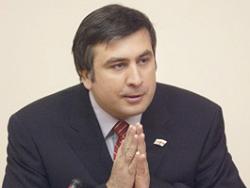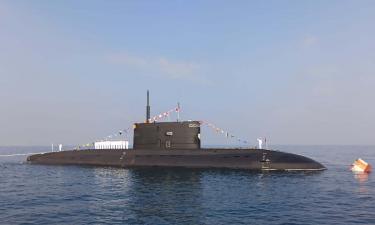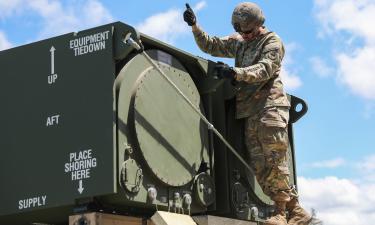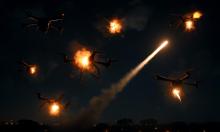Guest opinion: Deadlock in Georgia: an incremental gain for Russia
 Recent events in the Republic of Georgia that have raised tensions between Russia and the United States illustrate the complexity of relations that great powers encounter when they seek to tip the balance of power in their favor.
Recent events in the Republic of Georgia that have raised tensions between Russia and the United States illustrate the complexity of relations that great powers encounter when they seek to tip the balance of power in their favor.
The Local Sovereignty Conflict
The root of the current troubles in Georgia is a local set of conflicts over sovereignty that resulted from the break up of the Soviet Union. Soon after Georgia became a separate state, the regions of South Ossetia in the northern mountains and Abkhazia on the southwest coast fought successful wars of independence against the central government. Although the two mini-states have not been internationally recognized, they have maintained their autonomy with Russian protection. The central government, in turn, has sought - primarily through diplomacy - to reintegrate the separatist regions into the Georgian state.
Up until the present, the situation in Georgia has been deadlocked in a political and legal limbo, primarily by the presence in the two mini-states of Russian troops in the guise of "peacekeepers" who have blocked the possibility of Georgia's central government initiating military action. Recently, however, Georgia's pro-Western and pro-American President Mikhail Saakashvili (on the photo) has taken a more aggressive stance toward the two regions. In early August, he warned that any unauthorized vessels attempting to dock in Abkhazia would be sunk - including tourist ships from Russia - and Georgian gun boats have already fired on a freighter reportedly registered in Turkey with a Russian crew. At the same time, in South Ossetia, a visiting Russian parliamentary delegation was fired upon. The Russian Foreign Ministry blamed Georgian military infiltrators for the incident and Georgia's Interior Ministry asserted that the attack had been mounted by South Ossetian militia in order to create a provocation.
Saakashvili has promised that he will integrate Abkhazia and South Ossetia into Georgia by the end of his presidency. Both the popular reform movement that ousted the government of Eduard Shevardnadze in early 2004 and vaulted Saakashvili to power, and Georgian nationalists are pressing him to make good on his pledge, even to the point, in some cases, of urging him to risk confrontation with Russia. Meanwhile, Russia shows no signs of acquiescing in any diminution of its influence. The populations of the mini-states are pro-Russian and, indeed, would welcome incorporation into Russia. Many Abkhazians hold Russian passports and Ossetia is split between its southern portion and North Ossetia, which is part of Russia. Saakashvili would find it difficult to abandon irredentist policies, in light of the popular support for them, and Russia could not easily give up its role as a protector. Ultra-nationalists in Georgia are willing to contemplate war and military hardliners in Russia claim that they are ready for it. Yet a tangled web of interests obstructs the path to a direct military confrontation.
Great Power Strategic Conflict
The most important complicating factor in Georgia's conflict over sovereignty is that the country is an essential link in the Baku-Ceyhan pipeline that will carry oil from the Caspian Sea to the West. Control over Caspian Sea oil is perceived by the Western capitalist powers, led by the United States, to be a vital strategic interest. Uppermost in Western policy towards the entire Caucasus region is the goal of sufficient political stability to guarantee that the oil will flow. A secondary aim is to contain Russia's moves to regain its influence in the region and break out of what it perceives to be encirclement.
Georgia's strategic importance has resulted in an American military presence in the country to train its armed forces and assist in operations against Chechen fighters and Islamic revolutionaries who cross the border from Russia. The best-case scenario for the United States would be a reintegration of Abkhazia and South Ossetia into a Georgian state with a pro-Western government.
Saakashvili, who has contributed a small contingent to the American-led coalition in Iraq and is otherwise firmly committed to the West, including eventual membership for Georgia in N.A.T.O. and the European Union, would like to have active American support for reintegration, yet when he paid an unofficial visit to the United States in early August and met with National Security Advisor Condoleezza Rice and Secretary of State Colin Powell, he received only calls for dialogue and negotiation. Given its difficulties in Iraq, the United States is not ready for a confrontation with Russia and seems unlikely to back an assertive policy by Georgia's government towards the two breakaway mini-states. The United States will settle for relative stability that will protect the pipeline, and will put its more ambitious aims on hold. Saakashvili's recent move to a more assertive posture might be an attempt to force the issue with the United States, but it is unlikely to be successful.
Russia's best-case scenario would be the annexation of Abkhazia and South Ossetia, which would expand its influence over its periphery, but it is blocked from that path by the conflict in Chechnya, its present military weakness and, most importantly, by its interest in maintaining - for economic reasons - good relations with the West. Russia does not want to confront the United States militarily any more than the United States wants to confront Russia. The Putin administration will be satisfied to maintain the present status of Abkhazia and South Ossetia indefinitely, preserving its foothold and weakening Saakashvili's regime by forestalling reintegration. Russia can be expected to continue its present strategy of dragging out and stalling negotiations, seeking to limit the presence of O.S.C.E. and U.N. monitors along the borders of the separated regions, condoning local separatist militia and maintaining its "peacekeeping" forces.
With both of the interested great powers settling for deadlock -- although their fundamental interests are in conflict - Georgian hopes for reintegration are unlikely to be realized. Georgian nationalists who believe that Russia is a paper tiger and that the United States would have to back Tbilisi in a military confrontation are unlikely to win a sympathetic ear from Saakashvili. He has been boxed in and will increasingly find his room for maneuver restricted. His recent attempts to assert Georgian sovereignty seem to be more spasmodic and symbolic than calculated and strategic, as is evidenced by extensive qualifications to the gunboat policy issued by the government after its initial proclamation and by the government's denial of involvement in the attack on the Russian delegation in South Ossetia.
Georgia can be expected to maintain its support of local irredentist forces and to use diplomatic pressure whenever possible to increase international backing for its policies. It will try to internationalize negotiations and border policing, and Russia will resist such moves. The West will be reluctant to push back against Russia. Saakashvili is unlikely to be able to engineer a test of resolve between the United States and Russia for the foreseeable future.
Conclusion
Over the long-term, the deadlock in Georgia's sovereignty struggle works in the favor of Russia and the two breakaway mini-states. Not only does it solidify and normalize Abkhazia's and South Ossetia's autonomous status, giving them and their Russian protector more leverage in any final settlement that might be made, but it weakens the Saakashvili government's support within Georgia, setting the stage for a conflict between nationalists and accommodationists, and a resultant weakening of Western influence.
Prospects for overt confrontation would be enhanced if Moscow adopted a more militaristic policy or if Saakashvili decided that he had to force the issue decisively, but both of those shifts are unlikely to occur. Russia stands to gain a small increment of power from the Georgian stalemate and will benefit even more if Saakashvili's pro-Western regime weakens due to failure to reintegrate the breakaway regions.
Dr. Michael A. Weinstein,
PINR
PRAVDA.Ru has a content licensing relationship with the Power and Interest News Report (PINR)
Subscribe to Pravda.Ru Telegram channel, Facebook, RSS!





